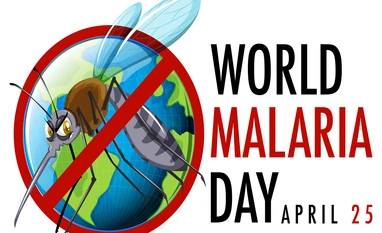Malaria is a very serious disease that kills up to 2.7 million persons every year and the majority of the cases are in children under the age of five years. This disease is caused by parasites transmitted through the bite of infected female Anopheles mosquitoes.
It is very crucial to identify the signs and symptoms of malaria for proper diagnosis and treatment. The severity and combination of symptoms can vary depending on certain factors like the type of malaria parasite, individual's immune response, and underlying health conditions.
World Malaria day is celebrated on 25 April every year and it is the right opportunity to spread awareness about the signs and symptoms of Malaria. Here are ten signs and symptoms of Malaria one should be careful about.
Every year, World Malaria Day is celebrated on April 25, making it the right opportunity to spread awareness about malaria's signs and symptoms.
10 signs and symptoms of Malaria
Fever
High fever is one of the most common symptoms of malaria, this generally occurs in timing coinciding with the parasite's life cycle. It is always recommendable to consult with doctors to test the diagnosis of malaria.
Headache
Headache ranging from mild to severe is also common malaria symptoms. These are excruciating and may not respond well to the commonly used pain relievers.
More From This Section
Fatigue and Weakness
Malaria patients also observe common malaria symptoms causing extreme weakness and fatigue. This makes it very difficult for people to do their daily activities.
Muscle and Joint Pain
Many malaria patients also reported muscle aches and joint pain which are generally flu-like symptoms.
Nausea and Vomiting
Malaria can also cause gastrointestinal symptoms like vomiting, nausea and abdominal pain leading to dehydration and electrolyte imbalances.
Loss of Appetite
Another common symptom seen in people suffering from malaria is a sudden appetite loss causing weight loss and nutritional deficiencies if remains untreated.
Jaundice
In many malaria cases jaundice may develop due to fever dysfunction, this making yellowing of the skin, whitening of the eyes, along with dark urine and pale stools.
Enlarged Spleen
The spleen plays a key role in the body's immune response to malaria disease. In many malaria cases the spleen may become enlarged causing abdominal discomfort and tenderness.
Confusion and Delirium
This disease also affects the brain causing confusion, delirium, coma and seizures. These neurological symptoms were also observed in some of the malaria diseases.
Anaemia
The parasites of malaria destroy red blood cells causing anaemia in affected people. The anaemia symptoms include weakness, breath shortness and dizziness.
)